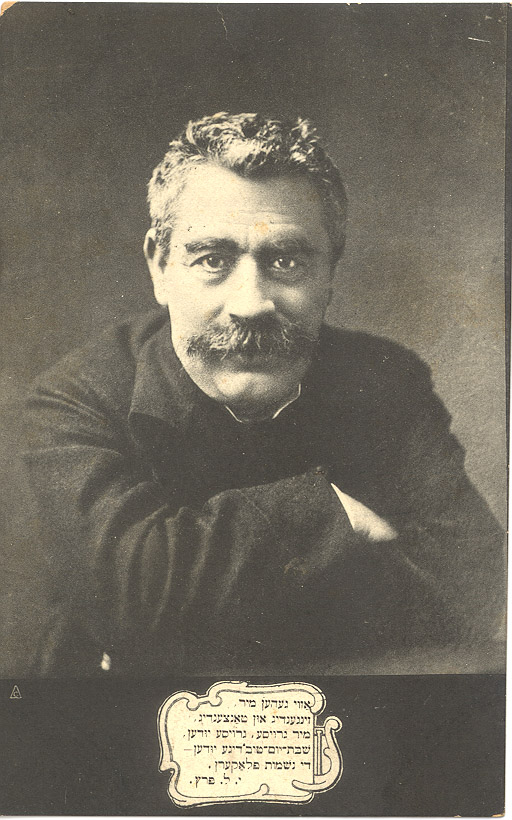Isaac Leib Peretz
, também grafado às vezes como Yitskhok Leybush Peretz, mais conhecido como I. L. Peretz, foi um escritor, poeta e teatrólogo de língua iídiche da Polônia. Peretz, Mendele Mocher Sefarim e Sholem Aleichem são considerados os três grandes escritores clássicos em língua iídiche. Sol Liptzin escreveu: "Yitzkhok Leibush Peretz foi o grande despertador dos judeus de língua iídiche, e Sholem Aleichem seu consolador... Peretz despertou em seus leitores a vontade de autoemancipação, a vontade de resistência..."
Peretz rejeitou o universalismo cultural, vendo o mundo como composto de diferentes nações, cada uma com seu próprio caráter. Liptzin comenta que "Cada povo é visto por ele como um povo escolhido..."; ele viu como seu papel de escritor judeu exprimir "ideais judaicos... baseados na tradição judaica e história judaica."
Ao contrário de outros Maskilim, tinha grande respeito pelos judeus chassídicos por seu modo de ser no mundo; ao mesmo tempo, entendia a necessidade de levar em conta a fragilidade humana. Seus contos como "E Talvez Mais Alto", "Cabalistas" e "À Cabeceira do Moribundo" enfatizam a importância da devoção sincera, em vez da religiosidade vazia.Segundo J. Guinsburg, organizador e tradutor para o português de uma coletânea de contos de Peretz, "Peretz pode ser considerado como o verdadeiro modernizador da literatura iídiche. Não só porque, através de sua pena, ela ecoou conscientemente o tema social e socialista ou porque se abriu às estéticas literárias da Europa. Romântico, realista, simbolista, impressionista, admirador de Heine, Hamsun, Ibsen, Tchekhov, Górki e tantos outros poloneses, franceses, alemães, foi ele sobretudo o homem que instituiu o indivíduo, a subjetividade, a emoção pessoal, a análise psicológica e mesmo intimista, em uma literatura que até então não fora muito além do tipo, do esboço coletivo, da análise de costumes, da redução do real ao objetivo, ao externo."Segundo Mônica de Gouveia, "Peretz não era um poeta popular inocente, nem um seguidor do Hassidismo, mas incorporou o elemento popular e a religiosidade às suas próprias crenças e pontos de vista. Ele impôs sua própria experiência sobre este material popular e tradicional, modulando-o conforme sua expressão estética."
Wikipedia
✵
18. Maio 1852 – 21. Março 1915
